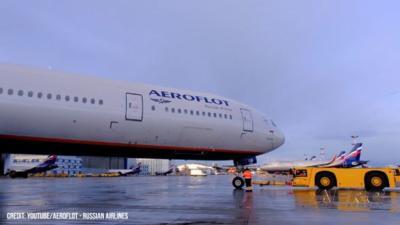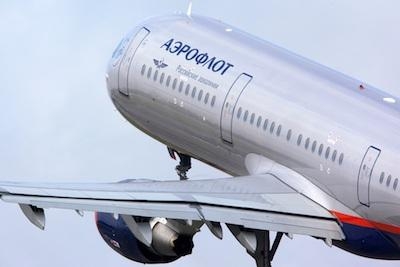Thu, Aug 11, 2022
Silence of the MELs
Belligerence against Ukraine has landed Russia in hot water with the international community—which swiftly levied sweeping sanctions against the superpower. In accordance with edicts handed down by their respective governments, American Boeing and European Airbus have halted sales of their aircraft, aircraft parts, and technical expertise to Russian air carriers. Desperate to keep their aircraft flying, Russian airlines have resorted to the age-old recourse of the desperate—cannibalism.

Cannibalism of aircraft usually occurs when the need for parts outpaces supply chains, and no alternative parts are available. As the airworthiness of commercial aircraft is predicated upon constant maintenance and component replacement, Russian airlines have had no choice but to remove aircraft from service and relegate them to the sad station of parts donors.
A leaked, unofficial report from within the Kremlin posits a dismal future for Russia’s aviation sector as the nation’s carrier’s attempt to replace Western airliners with Russian-made commercial aircraft. The cost of replacing Russia’s extant commercial fleet with one-thousand domestically produced airplanes by 2030 is estimated to cost 627-billion rubles—about $9.7-billion. Such a price tag is apt to prove too heavy a burden on Russian taxpayers—many of whom oppose their nation’s invasion of Ukraine.
In addition to cannibalism, Russian air carriers are endeavoring to source aircraft parts through Turkey, India, and China—countries alternately tacitly averse to the West or sympathetic to the Kremlin’s aims. China—likely fearing incurring Western sanctions of its own—has thus far reportedly turned down Russian airlines' requests for parts and technical support.

Owing to the increasingly dubious states of repair into which their fleets are falling, Russian airlines are currently prohibited from operating in the airspaces of most nations outside the Russian Federation. Critics of the West’s response to the Ukrainian conflict argue sanctions on Russia’s commercial aircraft industry are apt to harm primarily civilians forced to book travel aboard woefully underserviced aircraft.
Certainly, American and European resolve will be sternly tested when Aeroflot jets begin falling from Russian skies—as they inevitably will.
More News
Pilot Also Reported That Due To A Fuel Leak, The Auxiliary Fuel Tanks Were Not Used On June 4, 2025, at 13:41 eastern daylight time, a Piper PA-23, N2109P, was substantially damage>[...]
From 2023 (YouTube Edition): Reflections on War’s Collective Lessons and Cyclical Nature The exigencies of war ought be colorblind. Inane social-constructs the likes of racis>[...]
Pilot Reported That He Was Unfamiliar With The Single Seat Amateur-Built Airplane And His Intent Was To Perform High-Speed Taxi Testing Analysis: The pilot reported that he was unf>[...]
From 2023 (YouTube Edition): First Kits to Ship October 2023 Having formerly resurrected the storied shape of the Ryan ST—in effigy, anyway—Montrose, Colorado-based Tim>[...]
Performance-Based Navigation (PBN) [ICAO] Area navigation based on performance requirements for aircraft operating along an ATS route, on an instrument approach procedure or in a d>[...]
 NTSB Prelim: Piper PA-23
NTSB Prelim: Piper PA-23 Classic Aero-TV: One Mans Vietnam
Classic Aero-TV: One Mans Vietnam NTSB Final Report: Capella Aircraft Corp FW1C50
NTSB Final Report: Capella Aircraft Corp FW1C50 Classic Aero-TV: Timber Tiger Touts Curtiss Jenny Replicas
Classic Aero-TV: Timber Tiger Touts Curtiss Jenny Replicas ANN's Daily Aero-Term (07.04.25): Performance-Based Navigation (PBN) [ICAO]
ANN's Daily Aero-Term (07.04.25): Performance-Based Navigation (PBN) [ICAO]




